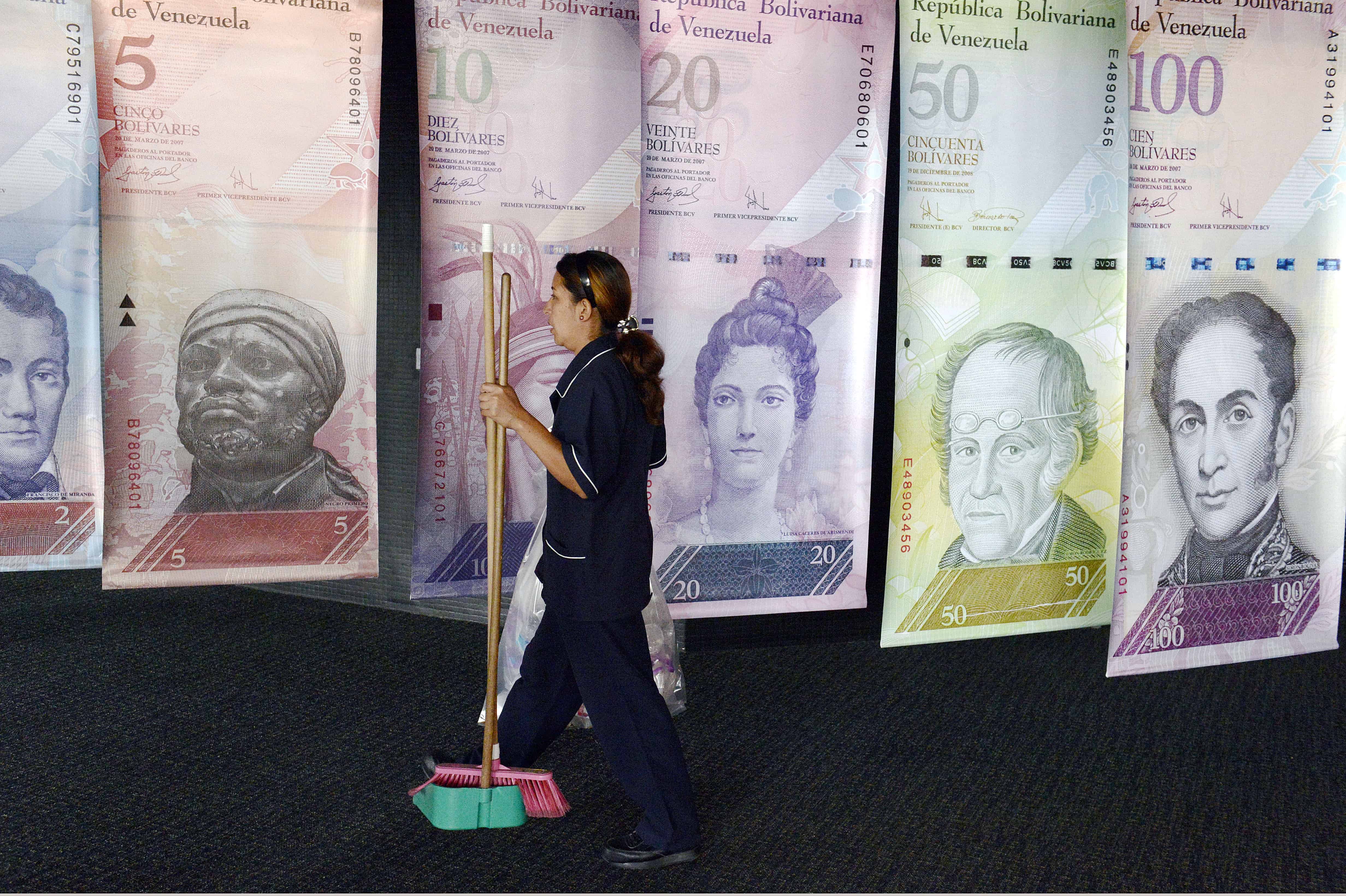CARACAS, Venezuela — By packing bags for $1 a day and tips at a Caracas supermarket, Luis has managed to save up for a Japanese sports motorbike. His secret? Getting hold of scarce food before it hits the shelves.
Luis offers preferential access to detergent, milk and sugar to his clientele of about 100 diplomats at a Centro Madeirense shop in the south of the capital. In return, they offer him the occasional work as a handyman or courier and loan him money during dry patches.
“Times are tough. We have to spin to survive,” Luis, 30, said in an interview in Caracas last month. “We have to be creative with the opportunities at hand to make ends meet.”
Price controls have emptied stores of most goods, while the world’s highest inflation has pushed what is available beyond the means of most Venezuelans. To make ends meet, they exploit the perks of their jobs to trade goods and services informally, mirroring networks that developed amid the scarcities in the former Soviet Union and came to be known as “blat.”
The prevalence and spread of such small-scale graft shows the failure of President Nicolás Maduro’s strategy of expropriation, arrests and inspections to boost production and end shortages, said Anabella Abadi, a public policy analyst at Caracas-based ODH Grupo Consultor.
“State intervention at all levels of economic activity is driving employers out of business, slashing the number and quality of formal jobs,” Abadi said by telephone from Caracas, on Feb. 12. “This is pushing Venezuelans to the informal activities authorities set out to eradicate in the first place.”
Maduro has blamed the shortages on the “economic war” waged against him by capitalists with U.S. aid and has seized shops and jailed their owners to force down prices.
Luis doesn’t feel like part of a global conspiracy. The minimum monthly wage of 5,600 bolívars ($32 on a new exchange market created last week) is close to useless, forcing people like him to supplement their incomes, said Luis, who asked not to use his last name for fear of government reprisals.
He sells scarce products at regulated prices to his friends, distancing himself from the black market re-sellers known as “buhoneros” who are blamed by the government for the shortages. Instead, he benefits from grateful customers’ favors later on.
“The use of personal contacts to get things done is a prominent feature of Socialist societies,” said Alena Ledeneva, a political scientist at University College London and author of a 1998 book “Russia’s Economy of Favours.” “In an economy of shortage, if you got a job, you got something to trade.”
Maduro’s ban on firing means most Venezuelans can join the “blat” economy. The country had 5.5 percent unemployment in December, the lowest in South America, according to the National Institute of Statistics.
A bank employee can fast-track a credit card application and an airline office worker can help reserve a ticket.
“This can be seen in practically all formal positions in Venezuela that have power to facilitate a bureaucratic errand or secure a product,” said Abadi.
It is a far cry from the oil boom of the early 2000s, when social programs were pulling millions out of poverty and generous dollar allowances subsidized foreign shopping trips for the middle class. Spending sprees in Miami by Venezuelans had earned them the nickname “give me two” in the local shops.
A 50 percent decline in oil prices in the past seven months has slashed the amount of dollars available to Maduro to import basic goods. Shortages of everything from medicine to beef reached record levels this year, with hundreds of people lining up outside supermarkets and pharmacies.
Gross domestic product will contract 7 percent in 2015, the biggest decline in Latin America, according to the International Monetary Fund.
The South American country’s benchmark bonds reached a 17- year low of about 35 cents on the dollar last month, before a rebound in oil prices and a partial relaxation of currency controls helped them recover to about 43 cents on Tuesday.
The government on Feb. 12 allowed the bolivar to weaken 69 percent against the dollar in the first day of trading on a new, alternative currency market.
Meanwhile, the government has said it is taking action to protect regulated products imported at a stronger preferential exchange rate from hoarding by big companies. In the past month inspectors have seized retailers and sent troops to smash down warehouse doors and uncover hidden stocks.
“This is our only way to effectively combat the speculative actions causing so much anxiety to our people,” Congress head Diosdado Cabello told state television Feb. 2 in front of corn flour stacked at an expropriated supermarket warehouse. “This food will now be sold to the people at fair prices” in state shops.
Those in the “blat” economy don’t see themselves as criminals waging war on the government, said Ledeneva.
“These people see what they are doing as friendship, loyalty — not as corruption,” she said. “When you’re the one benefiting, you don’t see it as dishonest.”
Alejandro, 32, keeps a shelf stacked with heart pills, antibiotics and cancer drugs reserved for friends in the back of his pharmacy in the town of Los Teques on the outskirts of Caracas. His store front display is nearly empty.
“All day long I get calls from friends, acquaintances, friends of friends. I have a list of people I save things for,” said Alejandro, who also asked not to use his last name.
Price controls mean he makes a maximum margin of two bolivars (about 1 cent) on every box of regulated medicine. “It’s not even worth selling it. Better to save it for friends.”
After the last delivery, Alejandro said he traded antibiotics for shampoo and toilet paper with a mini-market owner next door.
“This is the way everything functions here these days: I help them out, they help me.”
With assistance from Andrew Rosati in Caracas.






